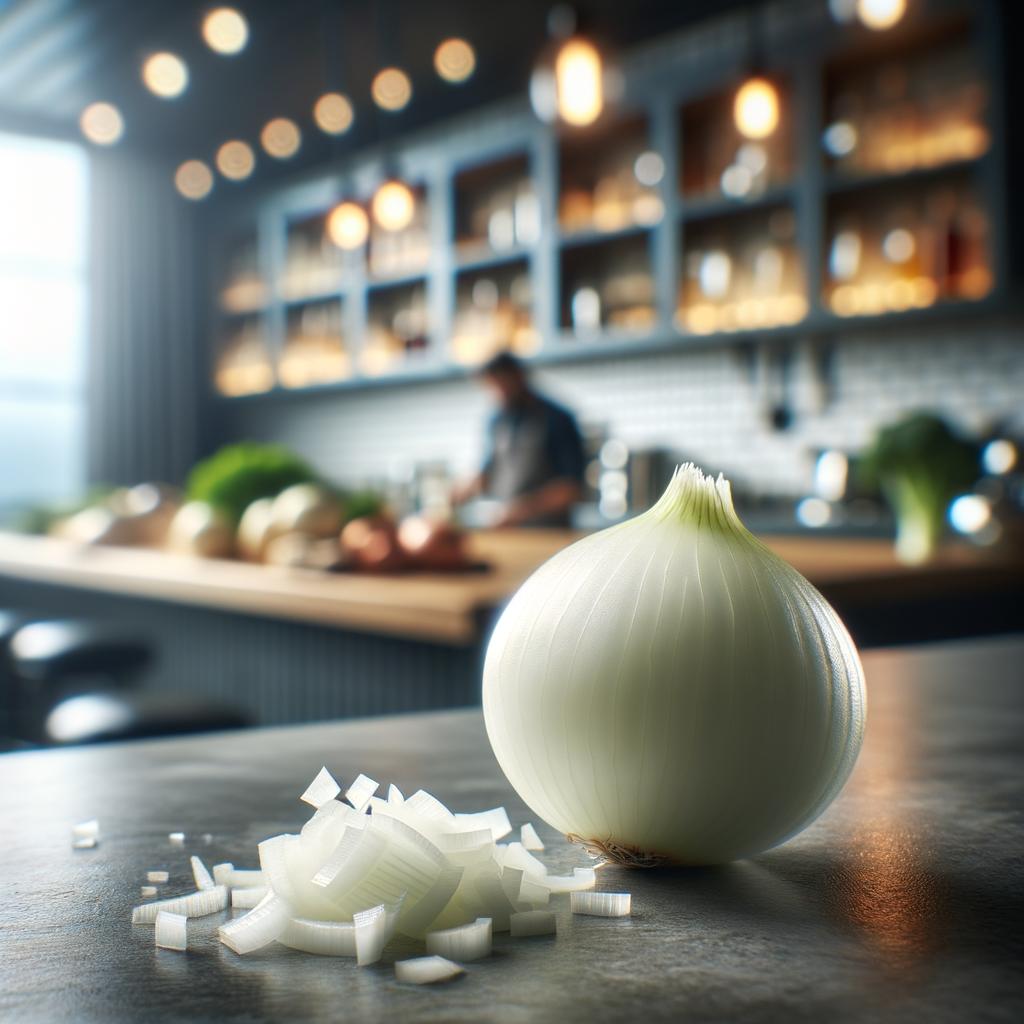Onion, Finely Chopped

Description
The humble onion, a cornerstone of many a kitchen, is a globe-shaped vegetable that comes from the Allium family. Its outer skin, a papery sheath ranging from a soft white to a fiery red or a deep, earthy brown, conceals layers of crisp, juicy flesh within. Once sliced into, the onion reveals a pale, almost translucent interior, its texture a satisfying crunch that gradually softens upon cooking. The flavor profile is a complex dance of sweetness, bitterness, and a pungent kick that can bring tears to the eyes, yet adds a depth of flavor to dishes that is unparalleled. What sets the onion apart from its Allium cousins is its versatility, being equally comfortable in a starring role or as a supporting act in a wide array of dishes.
Primary Uses
Onions, especially when finely chopped, are a staple in countless dishes across the globe. They form the foundation of a mirepoix in French cuisine, a sofrito in Spanish cooking, or a simple base for stews, soups, and sauces in myriad other culinary traditions. They can be caramelized to a sweet, sticky delight, pickled for a tangy bite, or simply tossed raw into salads for a refreshing crunch. Beyond the culinary world, onions have been used for medicinal purposes, believed to ward off colds and flus, and are a significant symbol in many cultures, representing wholeness and eternity.
History
The onion boasts a rich and intriguing history, being one of the earliest cultivated crops due to its ability to grow in diverse climates. Ancient Egyptians revered the onion, believing its spherical shape and concentric rings symbolized eternal life. Over time, the onion has journeyed across continents and cultures, shifting from a sustenance food for the poor to a beloved ingredient in haute cuisine. It has inspired folklore and tales, such as the Indian parable of the onion's layers being akin to the layers of the universe.
Nutritional Information
Despite its unassuming appearance, the onion is a nutritional powerhouse. It is packed with vitamin C, a potent antioxidant, and quercetin, a flavonoid that has been linked to heart health and reducing inflammation. Onions also provide a good amount of dietary fiber, aiding digestion, and are low in calories, making them a healthy addition to any diet. Compared to similar ingredients like garlic or leeks, onions offer a unique blend of nutrients and are particularly high in chromium, a trace mineral that helps regulate blood sugar. So, the next time you shed a tear while chopping an onion, remember it's a small price to pay for the wealth of flavor and nutrition these layers hold.

